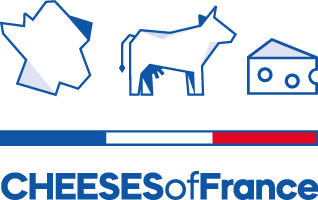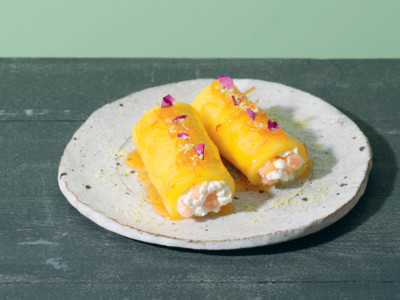Omar Koreitem was born in Lebanon, but came to France as a baby. He discovered a passion for cooking at the age of 31 and took his first culinary steps in New York under Daniel Boulud. As a commis chef coordinating canapés, he would often prepare a thousand or more items for each service. It was a case of in at the deep end – but a very good way to learn the basics and to understand the rigour required. Discipline was no more relaxed under Gordon Ramsay in London, where Omar stayed for two years before returning to France with his wife Moko, lawyer-turned-pastry-chef, who had also embarked on her new career relatively late. In 2015, they opened Mokonuts, a high-end lunch destination where the cuisine is spontaneous, combining the influences of both partners. Cheese is a popular ingredient in Lebanese cooking, and has a very special place here.
 Lebanon
Lebanon

I arrived in France in 1975, when I was one year old. My food memories are a bit of a mixture; my sisters and I ate French food at school and Lebanese food at home. My father loved making traditional Lebanese dishes with plenty of spice.
Even though I was immersed in a culture where food was very important, I came to cooking quite late in life. I was 31, and after studying Political Science, I worked at City Hall in New York. That’s where I met my wife Moko, who’s originally from Japan. She was a lawyer at the time, and it was food that brought us together. At 31, I decided to become a chef; at 36, she became a pâtissier.
At Mokonuts it’s just Moko and me with two kitchen assistants. We’re open during the week, from breakfast through to early evening. Our idea was to create a warm, casual environment like you’d have at home, but then add our experiences of fine dining. Ultimately, we cook the things we like to eat. We add something of ourselves, of our own tastes – a touch of Lebanon, a touch of Japan – but it’s not fusion. It’s more a market-led cuisine; it changes from day to day, according to what’s in season, and to what we like ourselves.
There aren’t many cheeses in Lebanon. They’re usually imported from Cyprus, Armenia, Turkey or Bulgaria. The cheeses we do have are often used in sweet dishes, like the dessert I’ve re-imagined for Sweet Cheese, or in knefeh, a double layered cheesecake – cheese topped with a semolina crust, baked in the oven and doused with syrup.
There’s always cheese in our home. I go to Japan with Moko quite often, and French cheese costs a fortune there. Not many Japanese people eat it. After a week I miss it so much I practically come out in a rash! It’s a deep-down need, it’s part of who I am, and I need to eat it regularly. I love all cheese. Gruyère is my favourite to cook with, but I like strong, runny cheeses with subtle flavours; I love Mont d’Or, Saint-Marcellin and Saint-Félicien.
When I was asked to use French cheese to create a dessert reflecting my country, I immediately thought of Halawet El Jibn. It’s even the Arabic for Sweet Cheese! In Lebanon they use Akawi, or the cheese of Saint Jean d’Acre, which looks a bit like mozzarella but is less salty and melts easily on cooking. I’ve replaced it with Mont d’Or, one of my personal favourites. It has a very distinctive flavour when you heat it – which we often do in France, before adding truffles, nuts or honey. I like the texture it has also when it’s cooked. The Lebanese are generally very open to new flavours but don’t like tinkering with tradition, so as long as we don’t call it Halawet El Jibn, they’ll love it!
Mokonuts
5 rue Saint-Bernard
75011 Paris
+33 (0)9 80 81 82 85
 繁體中文
繁體中文  简体中文
简体中文  한국어
한국어  Français
Français 

